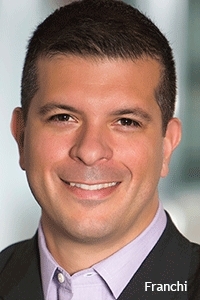There are two major shifts occurring in digital advertising, as advertisers move toward automation and mobile.
But how should advertisers traverse mobile? They could combine the two trends
and automate mobile campaigns through real-time bidding (RTB), or they could tap an ad network. The two options are not mutually exclusive, per se, but Mike Miller, SVP of sales and marketing at
RTB.com, believes RTB is the way to go.
Miller clearly has a horse in the race -- he works for a company named RTB.com, after all -- a service provider that bids on mobile impressions on
behalf of advertisers.
I asked if he thought ad nets were ripping-off advertisers, but he doesn't think so.
“Rip-off is a strong word,” he
said. “[But] in my experience, the sites that are not performing to the level the advertiser wants are where the networks are making the most money. The more information you share with the
advertiser -- they can't help themselves but optimize.”
advertisement
advertisement
Only problem is, Miller contends the advertiser doesn’t know which sites aren’t working. He compared ad networks to --
of all things -- soup.
“What the network is trying to do is sell the soup and just say, ‘At the end of the day, when it all comes out the soup tastes fine.’” He called
it a “blended model.” In other words, Miller believes networks are too opaque.
While Miller doesn't think ad nets are ripping-off advertisers, he does believe they are taking
advantage of them. But that might be the advertiser's fault, and/or they don't care. Perhaps some advertisers agree with the soup theory -- if it tastes good and you don’t want to cook it
yourself, why bother asking what the ingredients are?
 Keeping the analogy alive, Eric Franchi, co-founder and chief evangelist of Undertone, argued that “no one buys an ad network in this age of ‘Ad Network 2.0’ for
one ingredient.”
Keeping the analogy alive, Eric Franchi, co-founder and chief evangelist of Undertone, argued that “no one buys an ad network in this age of ‘Ad Network 2.0’ for
one ingredient.”
Franchi described “Ad Network 2.0s” as a companies that have a “much different, larger and complete business than the hundreds of banner-based ad
networks from the 2007-2008 ad network boom.”
I asked Franchi what he thought of the soup analogy, and he put his own spin on it.
“When you go to a restaurant and order a
bowl of soup from the waiter for lunch, you are paying for the entire experience: service, the chef’s expertise, all the hard costs that create a nice environment and all the ingredients in the
soup,” he said. “Do you ask what the cost of the tomatoes were in the soup? No. You want a great experience and a great bowl of soup. Tomatoes are just one ingredient.
“And
frankly, even if you or I were able to get ahold of the same tomatoes, for the same cost, there is no way we are going to come up with something like Mario Batali.”
Of course, the
assumption there is that ad nets are equivalent to famous chefs, but that’s another topic entirely. This debate revolves around transparency.
Both Franchi and Miller have strong points.
Ultimately, I agree with Miller's theory that advertisers want more once they know more -- I’ve written before about how curiosity is a main driving force in the ad tech industry.
If you let others manage
something on your behalf, I'd contend you are entitled to know how it’s being handled. But Franchi has a strong counterpoint: knowledge does not automatically translate to power -- just ask
those that say they have trouble making use of Big Data (if you can find any willing to publicly admit it).